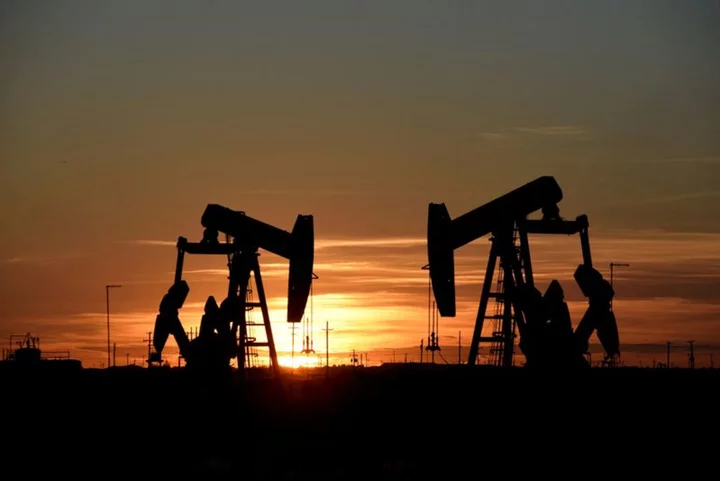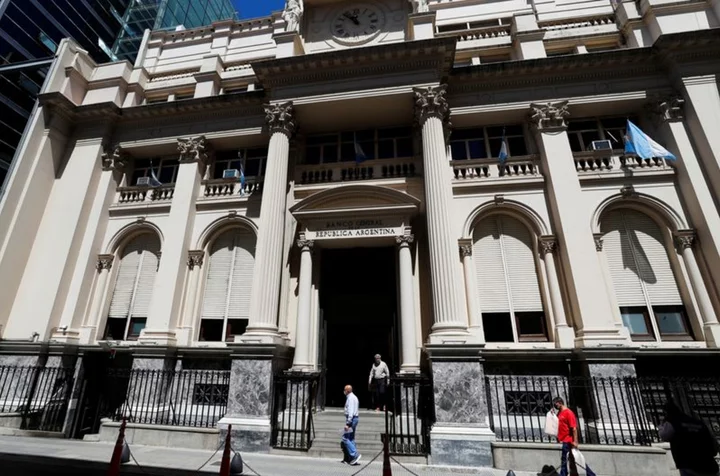By Florence Tan
SINGAPORE Oil prices jumped more than $2 a barrel in early Asian trade on Monday, hours after the world's top exporter Saudi Arabia pledged to cut production by another 1 million barrels per day from July.
Brent crude futures was at $78.42 a barrel, up $2.29, or 3%, at 2219 GMT after earlier hitting a session-high of $78.73 a barrel.
U.S. West Texas Intermediate crude climbed $2.27 a barrel, up 3.2%, or $74.01 a barrel, after touching an intraday high of $75.06 a barrel.
Saudi Arabia's output would drop to 9 million barrels per day (bpd) in July from around 10 million bpd in May, the biggest reduction in years, its energy ministry said in a statement.
The voluntary cut pledged by Saudi is on top of a broader deal by the Organization of the Petroleum Exporting Countries and their allies including Russia to limit supply into 2024 as the group seeks to boost flagging oil prices.
The group, known as OPEC+, pumps around 40% of the world's crude and has in place cuts of 3.66 million bpd, amounting to 3.6% of global demand.
"The move by Saudi Arabia is likely to come as a surprise, considering the most recent change to quotas had only been in effect for a month," ANZ analysts said in a note.
"The oil market now looks like it will be even tighter in the second half of the year."
However, many of these reductions will not be real as the group lowered the targets for Russia, Nigeria and Angola to bring them into line with actual current production levels.
By contrast, the United Arab Emirates was allowed to raise output targets by around 0.2 million bpd to 3.22 million bpd.
"UAE has been allowed to expand output, at the expense of African nations, which had their unused quotas lowered under the new agreement," ANZ said.
(Reporting by Florence Tan; editing by Diane Craft)









